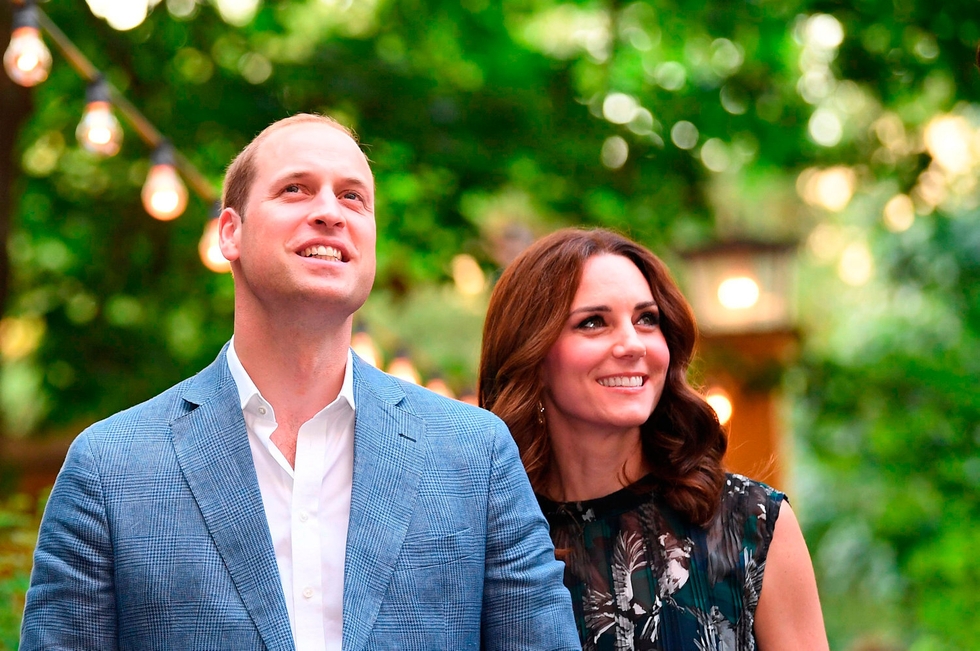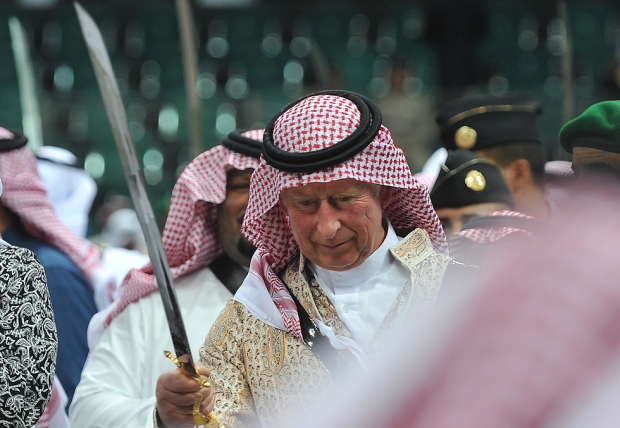Prince William to become first British royal to visit occupied Palestine

LONDON - Prince William will visit Israel and the occupied territories this summer, in the first state visit by a British royal to the region since 1948.
The visit by the Duke of Cambridge will be the first time a member of the British royal family has made a visit to the occupied territories, and appears to mark a shift in British government policy on the issue.
He is being urged to use the visit to speak up for those "affected by Israel’s 50-year occupation" and to raise the issue of children being held in Israeli prison.
“During his trip we hope Prince William visits some of the Palestinian communities affected by Israel’s 50-year occupation, including people in Hebron who’ve been torn from their families and livelihoods by the notorious Shuhada Street closure," said Alan Hogarth, Amnesty International UK’s head of policy and government affairs.
He added: "He could also listen to families like Ahed Tamimi’s, who can tell him what it’s like to have children detained by the Israeli authorities for minor offences or simply for protesting against the occupation."
Hogarth also called on Prince William to support the Amnesty campaign to o ban the import and sale of all goods produced in the illegal Israeli settlements
The British royal is almost certain to confine his visit to the occupied territories to the West Bank, as a visit to Gaza would likely be deemed too controversial.
The British government lists the military wing of Hamas, which runs the enclave as a terrorist organisation, for its aims to end “Israeli occupation in Palestine and establish an Islamic state.”
The visit will likely prove controversial as it coincides with the 70th anniversary year of Israeli independence.
Israel President Reuven Rivlin tweeted on Thursday that the arrival of Prince William would be a "very special present".
Israeli Prime Minister Benjamin Netanyahu said: "I have instructed the Foreign Ministry director general to coordinate the preparations ahead of the visit in order to ensure its success," Haaretz reported.
"The visit is at the request of Her Majesty's Government and has been welcomed by the Israeli, Jordanian and Palestinian authorities,” said a spokesperson for the British royal, who is second in line to the throne and seen as the modernising face of the centuries-old institution.
Visits by British royals are carried out at the request of the government and often signal a desire to push a diplomatic or economic agenda. The British royal family has historically always rejected Israeli invitations for official state visits, although individual members have visited the country in a personal capacity, and attended state funerals.
Foreign Office Minister Alistair Burt said it was an "important and unique opportunity to promote diplomatic and cultural ties in the region".
It had been thought unlikely that any members of the British royal family would visit Israel or the occupied territories as long as the peace process remained unsolved.
Prince Charles, William’s father and first in line to the throne, reportedly declined an invitation to visit Jerusalem in 2015, though he did attend the funeral in 2016 of former Israeli leader Shimon Peres in a private capacity. He also used the occasion to visit the burial site of his grandmother, Princess Alice of Battenberg, on the Mount of Olives.
The visit by Charles was unreported in the Israeli media at the time, amid suggestions of restrictions imposed by the British royal household. The burial site is located in East Jerusalem, which Israel captured during the 1967 Six-Day War, but the UK does not recognise as legally part of Israel.
Likewise, the Queen's cousin the Duke of Gloucester visited the St John eye clinic in the occupied territories in 2007, but this was not considered an official visit. On both cases, the UK government was quick to stress the royal visit did not in any way represent the state.
“Until there is a settlement between Israel and the Palestinian Authority, the royal family can’t really go there,” a British government source told The Telegraph newspaper in 2015. “In Israel so much politics is caught up in the land itself that it’s best to avoid those complications altogether by not going there.”
An Israeli official told the newspaper: “We’re the only democracy in the Middle East and so you ask why do the royals go to the Arab dictatorships around us but they don’t come here?”
Prince William is also personally understood to be against a visit, and last summer it was reported by the tabloid press in London that a planned visit by the royal to Israel had been cancelled. The UK Foreign Office denied a visit had ever been planned.
In 2007, an aide to the royal warned in an internal email, which was later leaked to the press, that a visit by the prince would likely be used by Israel to try to boost its global standing. “Safe to assume there is no chance of this visit ever actually happening?” deputy private secretary Clive Alderton wrote to private secretary Sir Michael Peat. “Acceptance would make it hard to avoid the many ways in which Israel would want [Prince Charles] to help burnish its international image.”
Middle East Eye propose une couverture et une analyse indépendantes et incomparables du Moyen-Orient, de l’Afrique du Nord et d’autres régions du monde. Pour en savoir plus sur la reprise de ce contenu et les frais qui s’appliquent, veuillez remplir ce formulaire [en anglais]. Pour en savoir plus sur MEE, cliquez ici [en anglais].





